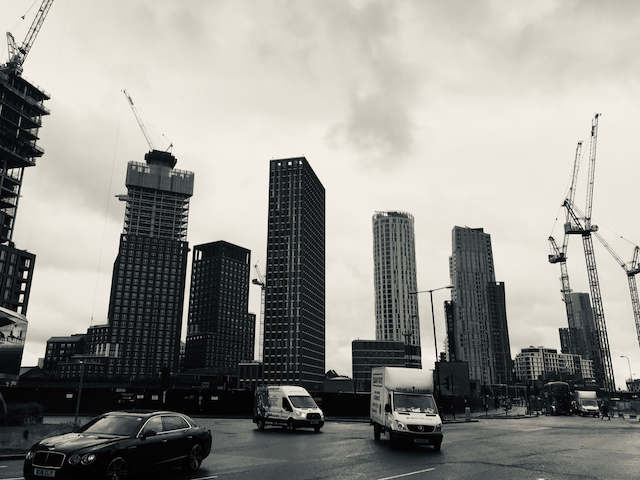Over the last few weeks I’ve been talking to engineers about they can do in response to the climate emergency. For those that are engaged with the topic, I am picking up a sense of deep frustration, which seems to come in two flavours.
One flavour is that the circumstances of their work just don’t allow them to be making the sort of difference in the battle against climate change that they feel they want to. For example, they may be working for a client for whom, say, energy efficiency is not a priority. In these circumstances it can be very frustrating to feel you can’t take any action.
The other flavour of frustration comes from those who do feel they have some agency in tackling climate breakdown through their work, but feel that they are not doing enough.
I think underlying both of these frustrations is the sense that if only I could try harder, I could make a difference. This, then, becomes a personal, potentially isolating feeling.
But one phrase I heard over the summer (I forget where) that has stuck with me has the power to lance this frustration, ‘We have come to the end of trying harder and being nice’.
The ‘trying harder’ refers to the hard work that individuals, teams and organisations have done in recent decades to make their work and our industry more sustainable. Being nice is the part where we avoiding having the difficult conversation with people because it would be nicer not to. I recognise both of these characterisations in my own work, and it resonates with lots of people I have spoken to recently.
But, the recent climate science tells us this approach is no-longer sufficient to achieve our aims of a better society. This approach is no-longer even enough to keep us in a steady state: recent non-linear rises in sea levels and air temperatures signal that climate feedback loops are being triggered and we are now on the steep decent to climate breakdown.
In short, the incremental improvements we can make through our own work are important but no-longer sufficient to avoid disaster.
To avert catastrophe, we need a radically different approach. We need the number one agenda item at the highest levels of power to be avoiding climate breakdown. Once that agenda is set, engineers can then be freed to use their ingenuity to help us work out how are going to deal with, respond to and recover from this crisis.
Until the agenda is changed, that feeling of frustration that I described won’t go away. And worse for society, until that agenda is changed engineers won’t be working en masse to either avert the worse potential impacts of climate breakdown or to deal with the crises that are already heading our way.
So how do we change the agenda?
The government controls the climate agenda in the UK. History has shown that the best way to achieve a radical, lasting and peaceful change in the status quo is through sustained non-violent direct action and civil disobedience against the government. In other words, we come together and protest, and keep on protesting, until the government changes the agenda. This is the opposite of feeling isolated, of acting alone.
Extinction Rebellion was formed with exactly this aim in mind, to come together and rebel against the status quo in the hope avoiding the very real possibility of our own extinction.
This October will see our biggest uprising yet in the UK as people descend on London and non-violently disrupt government until leaders agree to take emergency action now.
This isn’t an uprising of protesters, it is an uprising of people: accountants, artists, care workers, civil servants, clearers, doctors, ecologists, farmers, film makers, health workers, journalists, labourers, landlords, lawyers, midwives, musicians and performers, people from the armed forces, plumbers, police, psychologists, scientists and researchers, social workers, teachers and lectures, truck drivers, writers… and engineers.
If you want to make a real difference to the climate emergency, then join the protests, in whatever way you feel able, to change the agenda. Once the agenda is changed we can go about doing our jobs as engineers in the service of humanity.
How do I get involved?
- Global Climate Strike Day – Join the Global Climate Strike day on September 20th by going to your local action – find your nearest action.
- Sign up to Extinction Rebellion on our website, which will give you information about where your nearest meetings are happening.
- Get involved with XR Engineers – see what is happening via our Facebook page and ask to join our Facebook group. Our aim is to bring more engineers into the protest movement, to bring engineers’ voice to the campaign, and to challenge the leadership of the engineering profession to speak on our behalf to government.
- Come to our first XR Engineers event in London on Thursday 19th October where we will be presenting ‘Heading for extinction and what engineers can do about it’.
- Challenge from within – Start asking challenging questions within our own profession as an act of protest – see my list of ‘Uncivil engineering questions‘.


Leave a Reply